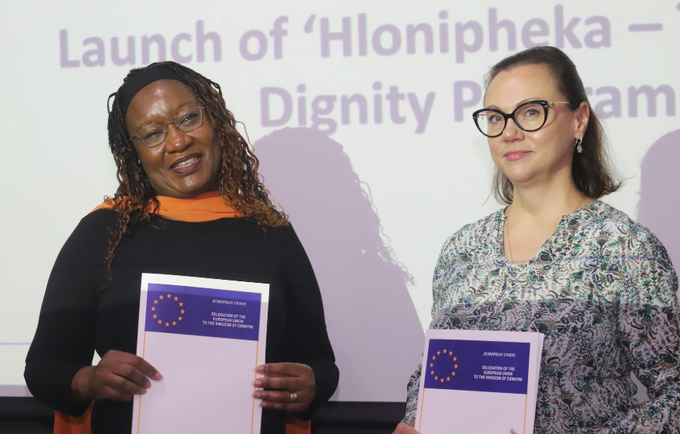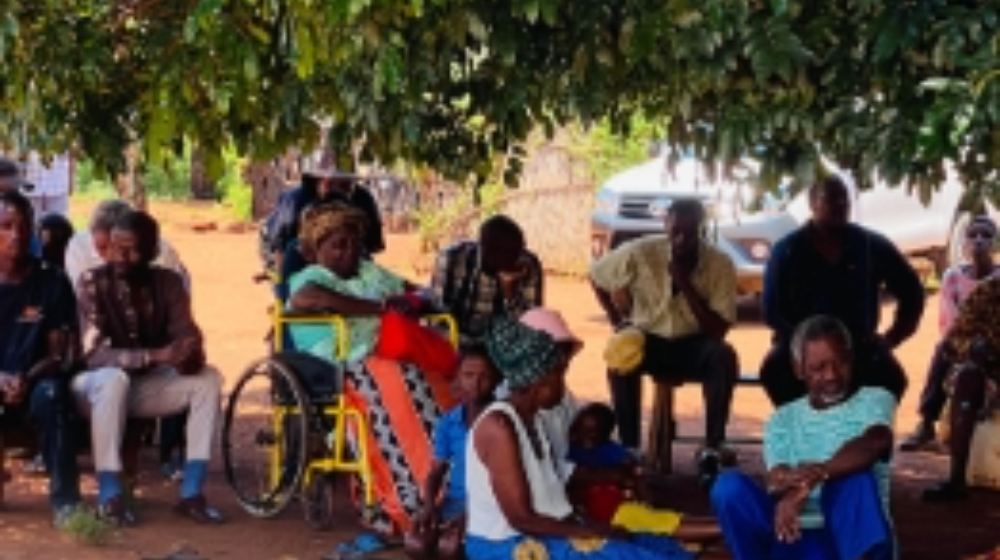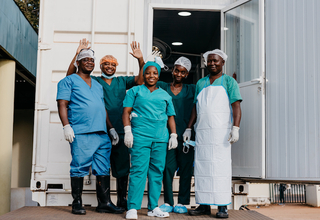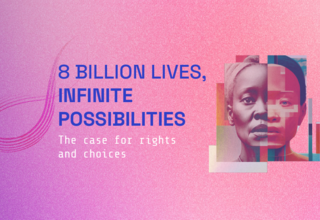About 400 survivors of gender-based violence in Eswatini, along with approximately 1500 persons with disabilities, are set to benefit from the Hlonipheka – Thriving for Dignity programme, valued at nearly E11 million. The partnership betwen the European Union and the United Nations Population Fund (UNFPA), aims to address the pressing issue of gender-based violence and empower vulnerable communities in Eswatini, including persons with disabilities.
Hlonipheka, meaning dignity in Siswati, was officially launched by the Deputy Prime Minister, Sen. Thulisile Dladla, represented by Principal Secretary of the Deputy Prime Minister’s Office, Ambassador. Melusi Masuku, at the UN House in Mbabane on 21 February 2024. Highlighting the urgency of the project, the Deputy Prime Minister emphasized its timeliness in light of the recent surge in cases of gender-based violence across the country.
Over the course of three years, the project will implement various interventions, including the empowerment of 200 caregivers and family members of children with disabilities, as well as training of 80 service providers and counsellors in safe spaces. Additionally, 700 policymakers, including Members of Parliament, Tindvuna Tetinkhundla, service providers (healthcare workers, teachers, and community members), will undergo training and sensitization on their roles in supporting the programme's objectives.
The overarching goal of Hlonipheka is to foster safe communities that actively promote social justice and protect the rights of women, girls, and persons with disabilities. It is anticipated that the programme will lead to significant improvements in the human rights and overall well-being of survivors of gender-based violence and persons with disabilities in Eswatini.
Recent data underscores the critical need for initiatives like Hlonipheka, with statistics revealing that one in four females and nearly one in three males aged 13-24 years in Eswatini have experienced some form of violence. Moreover, between 2020 and 2022, the country witnessed a troubling 22% increase in gender-based violence cases.
EU Ambassador Ms. Dessislava Choumelova echoed His Majesty King Mswati III's call for increased resources to combat gender-based violence, emphasizing the EU's commitment to investing in human capital and social cohesion. The EU's contribution of EUR 500,000 (SZL 10,260,000) towards the project demonstrates its dedication to supporting initiatives that address pressing social issues.
Ms. Lydia Zigomo, UNFPA Regional Director for East and Southern Africa, highlighted the widespread prevalence of violence against women and girls globally, emphasizing the need for collective action to combat this human rights abuse. In Eswatini, data reveals significant disparities in decision-making power, with 51% of women lacking autonomy in crucial areas such as sexual consent, contraception use, and healthcare decision-making.
Mr. George Wachira, UN Resident Coordinator, stressed the importance of collaboration among stakeholders to achieve the project's objectives effectively. He expressed gratitude to the Deputy Prime Minister for her strong leadership on GBV in line with the directives of His Majesty the king, and thanked civil society, the media, the private sector and international partners for speaking up strongly on the issue. Mr. Wachira thanked the EU for its continued partnership with the UN, locally and globally, in delivering sustainable development programmes, recognizing the vital role of financial support in driving positive change.
The Hlonipheka – Thriving for Dignity project represents a significant step forward in addressing gender-based violence and promoting the rights of vulnerable communities in Eswatini. Through collaboration and concerted efforts, it is poised to make a meaningful impact on the lives of survivors and persons with disabilities, fostering a more equitable and just society for all.




